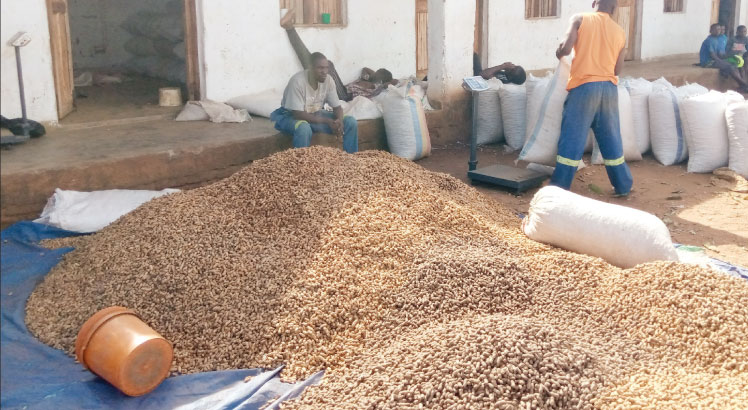Smuggled goods flood Limbuli Market
 Limbuli Market, close to Muloza border in Mulanje, is flooded with goods smuggled from Mozambique.
Limbuli Market, close to Muloza border in Mulanje, is flooded with goods smuggled from Mozambique.
Small-scale businesspeople are bringing goods into the country without paying duty to Malawi Revenue Authority (MRA).
MRA public relations manager Steve Kapoloma says they are aware that there is rampant smuggling at Muloza because of the porosity of the border.
“Our border at Muloza in Mulanje does not have natural barriers such as rivers and mountains to discourage people from crossing over from Mozambique to Malawi and vice versa with goods. As a result, smuggling is common in the area,†he said.
A Business News visit to Muloza revealed that second hand motorcycles, cooking oil, laundry soap, salt and wheat flour are some of the common goods being smuggled into the country.
One vendor at the market, who opted for anonymity, said the goods are smuggled using the Muloza River which has several shallow points.
“We buy the motorcycles, cooking oil and other goods from Villa in Mozambique. It is just 10km away from here.
“Soap, cooking and motorcycles are cheaper in Mozambique than in Malawi,†he said.
A tablet of soap, for example, sells at K30 while a five-litre bottle of cooking oil is at K3 000 in Mozambique, but when brought to Muloza they fetch K75 and K5 000 respectively.
“We buy a second hand motorcycle in Mozambique at K100 000, but a new motorcycle of the same type sells at K500 000 in Malawi,†he said.
This year, the vendor said, Malawian maize is also being smuggled into Mozambique because there is a shortage of the grain in some parts of that country.
He said truckloads of maize from Lilongwe and other parts of Central Region go to Muloza every day.
But Kapoloma said most of the motorcycles are tracked down because one can only use them when they are registered with the Road Traffic Department.
“Vehicles and motorcycles are easily tracked down because they can only ply on our roads if they are registered and registration cannot take place without receipts from MRA confirming that duty has been paid,†he said.
On what MRA is doing to curb the malpractice, Kapoloma said they have a flexible anti-smuggling team which patrols the border to intercept and confiscate smuggled goods.
He added that they are also working with communities along the border who tip them off when they see goods being smuggled in and outside the country.
“If the goods are confiscated, the informant instantly gets 10 percent of the value of goods that was being smuggled into or outside the country,†said Kapoloma.
He said smuggled goods, apart from robbing government of duty, brings unfair competition among businesspeople as they are usually sold at a low price that does not reflect the actual market value of such goods.
This certainly threatens local businesses and industry, thereby putting employment and income tax at risk.
Â





